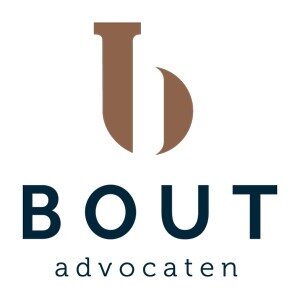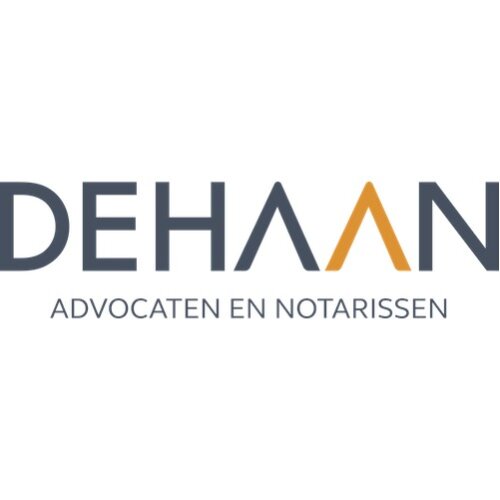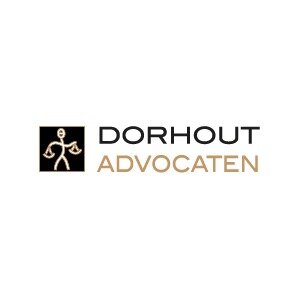Best Financial Services Regulation Lawyers in Groningen
Share your needs with us, get contacted by law firms.
Free. Takes 2 min.
List of the best lawyers in Groningen, Netherlands
About Financial Services Regulation Law in Groningen, Netherlands
Financial Services Regulation in Groningen, Netherlands, is governed by a combination of national and European Union laws. This framework aims to maintain the integrity of financial markets, protect consumers, and ensure financial stability. In Groningen, as with other parts of the Netherlands, these regulations cover a range of services, including banking, insurance, investment, and payment services. The regulatory environment is overseen by national authorities like the Dutch Central Bank (DNB) and the Netherlands Authority for the Financial Markets (AFM), which are responsible for enforcing compliance and handling breaches of the law.
Why You May Need a Lawyer
Individuals and businesses may find themselves in need of legal assistance related to Financial Services Regulation for numerous reasons. Common situations include navigating complex compliance requirements, dealing with disputes in financial contracts, managing regulatory investigations or audits, and understanding legal obligations under new laws or changes in the regulatory landscape. A lawyer specializing in Financial Services Regulation can provide crucial guidance to ensure activities are compliant with current laws and regulations, thus avoiding potential liabilities and financial penalties.
Local Laws Overview
Key aspects of local laws relevant to Financial Services Regulation in Groningen include the Financial Supervision Act (Wft), which outlines the framework for licensing and operation of financial institutions. The MiFID II (Markets in Financial Instruments Directive) also significantly impacts the regulation in the investment sector. These regulations require strict adherence to transparency, consumer protection, and anti-money laundering measures. Local businesses and financial institutions in Groningen must also consider EU-wide regulatory adjustments and how they integrate with national laws.
Frequently Asked Questions
What is the Financial Supervision Act (Wft)?
The Financial Supervision Act (Wft) is a comprehensive framework that regulates the financial sector in the Netherlands, covering banking, investment, and insurance sectors. It's designed to maintain market integrity, protect consumers, and ensure financial stability.
Who oversees financial compliance in Groningen?
The Dutch Central Bank (DNB) and the Netherlands Authority for the Financial Markets (AFM) are the primary supervisory bodies that oversee financial compliance in Groningen as well as the rest of the Netherlands.
Do I need a license to offer financial services in Groningen?
Yes, offering financial services in Groningen typically requires a license from either the DNB or the AFM, depending on the nature of the services provided. Operating without the necessary licenses can lead to significant penalties.
How can I report a financial regulation breach?
To report a breach, individuals or entities can contact the AFM or DNB directly through their established reporting channels, ensuring confidentiality and, when requested, anonymity.
What are my obligations under MiFID II?
MiFID II imposes requirements on firms to increase transparency and protect investors, including stricter reporting standards and enhanced client protections for those engaging in investment services.
How does the GDPR impact financial services in Groningen?
The General Data Protection Regulation (GDPR) affects financial services by requiring firms to protect personal data and privacy of clients, with strict penalties for non-compliance.
What are anti-money laundering requirements in Groningen?
Under the Dutch Money Laundering and Terrorist Financing Prevention Act, institutions must identify and verify clients, monitor transactions, and report suspicious activities to help combat money laundering.
Are there specific rules for fintech companies?
Yes, fintech companies in Groningen must comply with general financial regulations as well as specific guidelines applicable to their innovative business models, ensuring they follow both national and EU regulatory frameworks.
Can foreign companies offer financial services in Groningen?
Foreign companies can offer financial services in Groningen provided they comply with Dutch and EU regulations, including obtaining necessary licenses and fulfilling local compliance requirements.
What are the consequences of non-compliance with financial regulations?
Non-compliance can lead to substantial penalties, including fines, suspension of licenses, or total prohibition from carrying out financial services in the Netherlands.
Additional Resources
Valuable resources for understanding and navigating Financial Services Regulation in Groningen include:
- The Dutch Central Bank (DNB) - provides guidance on regulatory requirements and licensing.
- The Netherlands Authority for the Financial Markets (AFM) - offers resources on market regulations and financial consumer protection.
- The Dutch Ministry of Finance - issues policy documents and updates on financial regulation in the Netherlands.
- European Banking Authority (EBA) - provides EU-wide regulatory standards affecting local laws.
Next Steps
If you need legal assistance in Financial Services Regulation, consider the following steps:
- Identify the specific regulatory issue or question you have.
- Research local law firms in Groningen specializing in financial services regulation.
- Schedule a consultation to discuss your situation and potential legal strategies.
- Ensure that the lawyer or firm you choose has experience relevant to your specific needs and check client reviews or testimonials.
- Work closely with your legal counsel to navigate and comply with the applicable regulations effectively.
Lawzana helps you find the best lawyers and law firms in Groningen through a curated and pre-screened list of qualified legal professionals. Our platform offers rankings and detailed profiles of attorneys and law firms, allowing you to compare based on practice areas, including Financial Services Regulation, experience, and client feedback.
Each profile includes a description of the firm's areas of practice, client reviews, team members and partners, year of establishment, spoken languages, office locations, contact information, social media presence, and any published articles or resources. Most firms on our platform speak English and are experienced in both local and international legal matters.
Get a quote from top-rated law firms in Groningen, Netherlands — quickly, securely, and without unnecessary hassle.
Disclaimer:
The information provided on this page is for general informational purposes only and does not constitute legal advice. While we strive to ensure the accuracy and relevance of the content, legal information may change over time, and interpretations of the law can vary. You should always consult with a qualified legal professional for advice specific to your situation.
We disclaim all liability for actions taken or not taken based on the content of this page. If you believe any information is incorrect or outdated, please contact us, and we will review and update it where appropriate.











